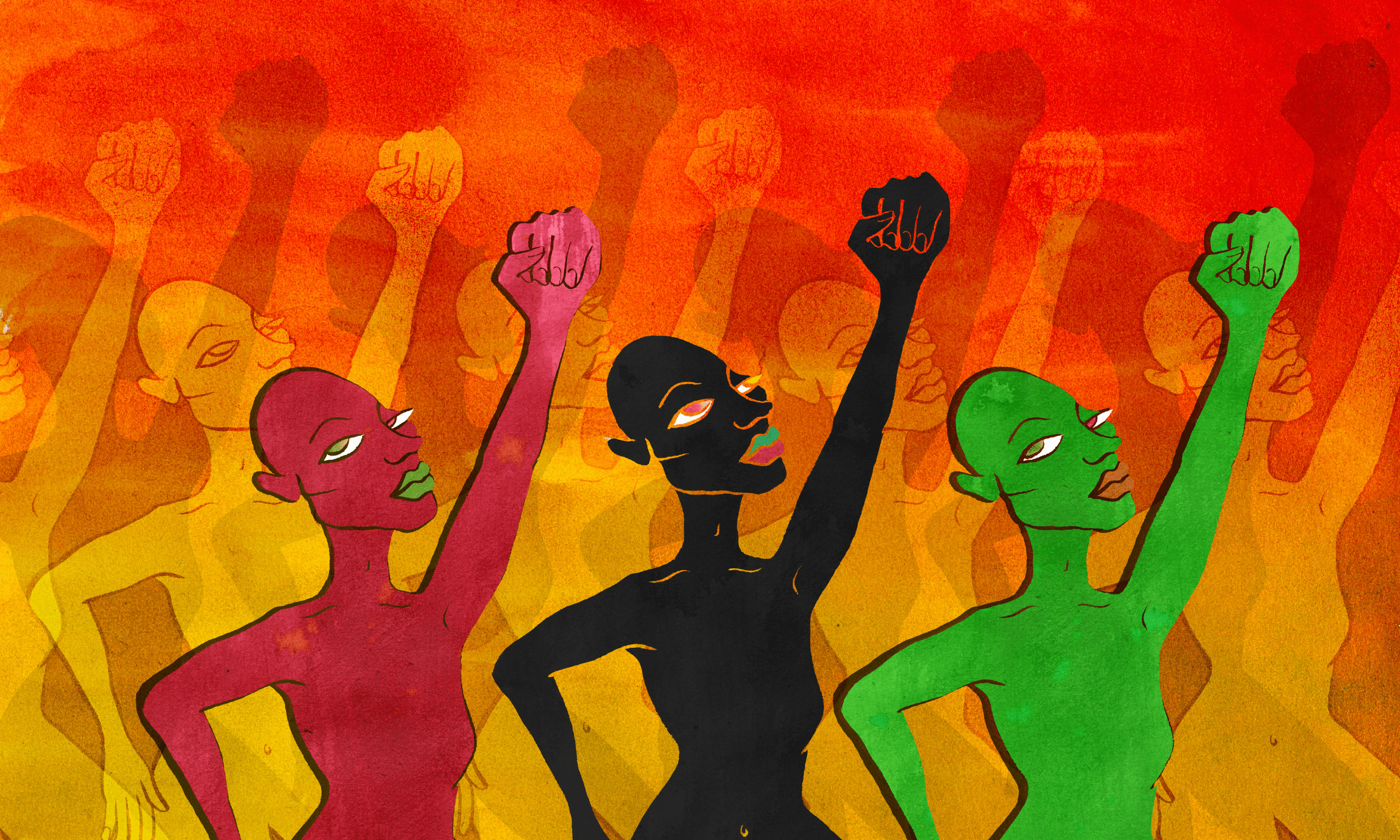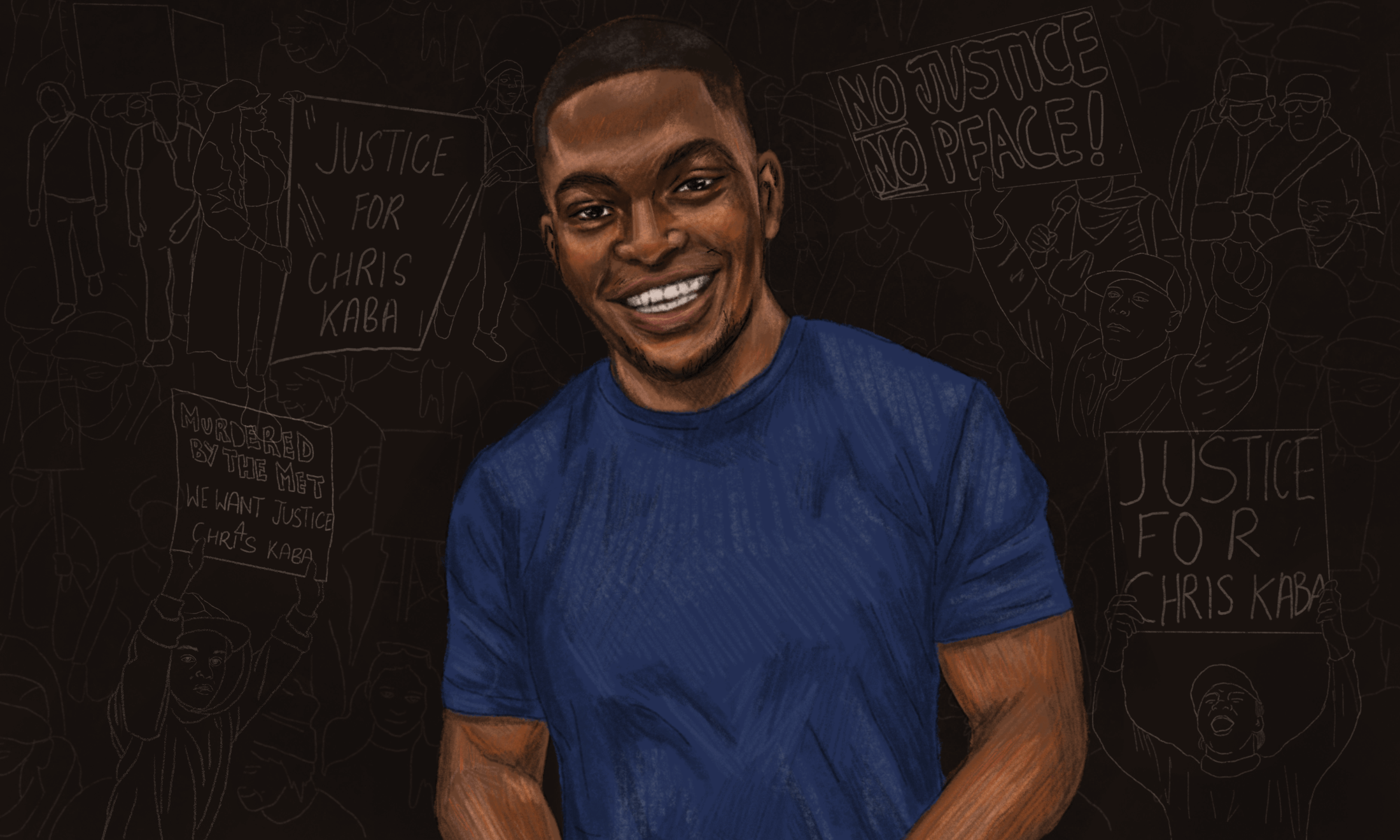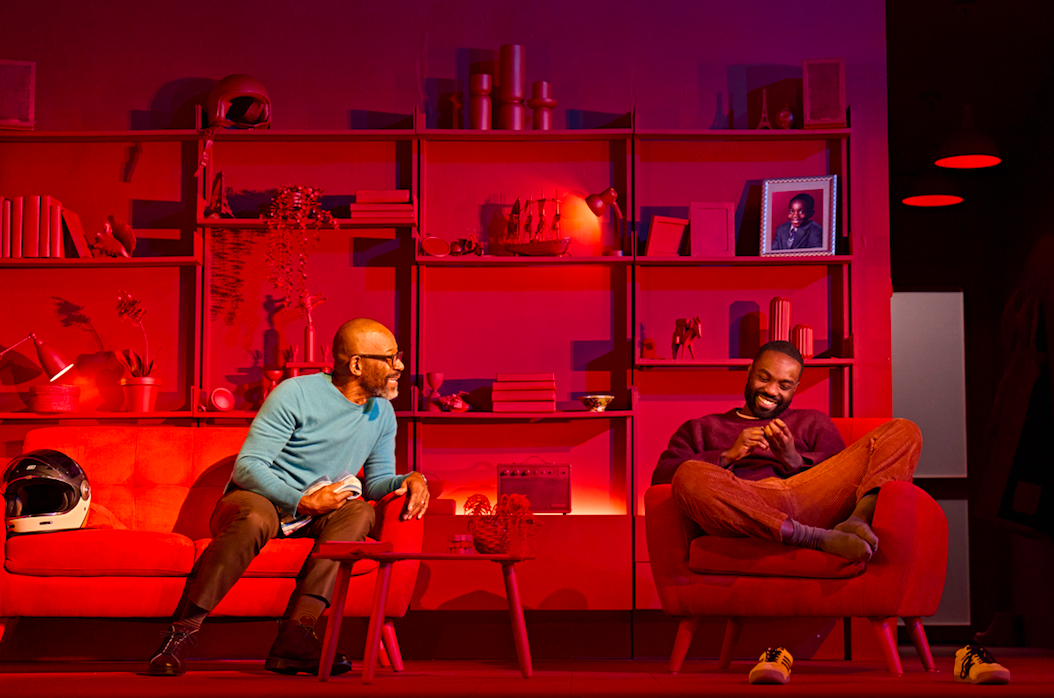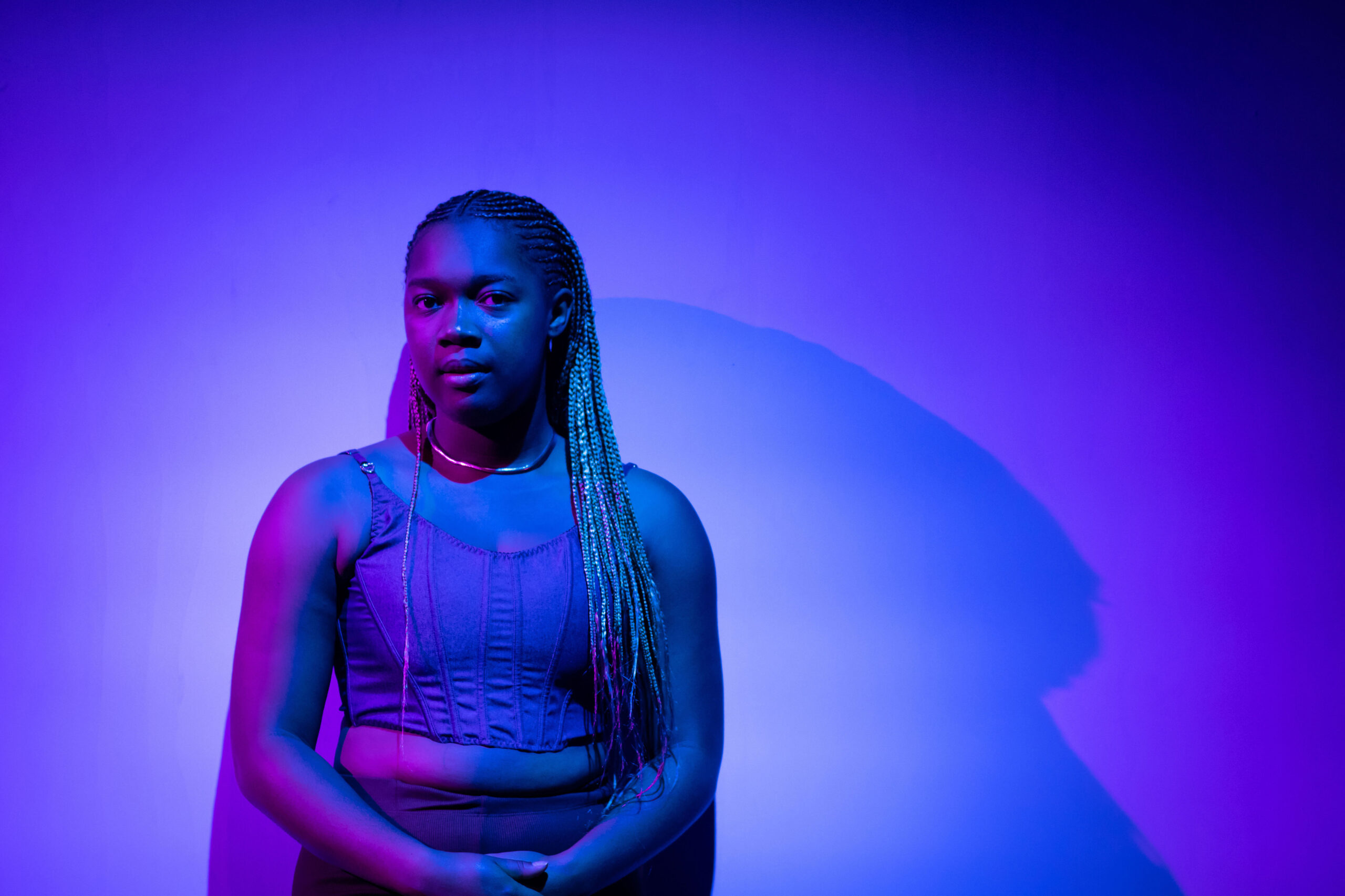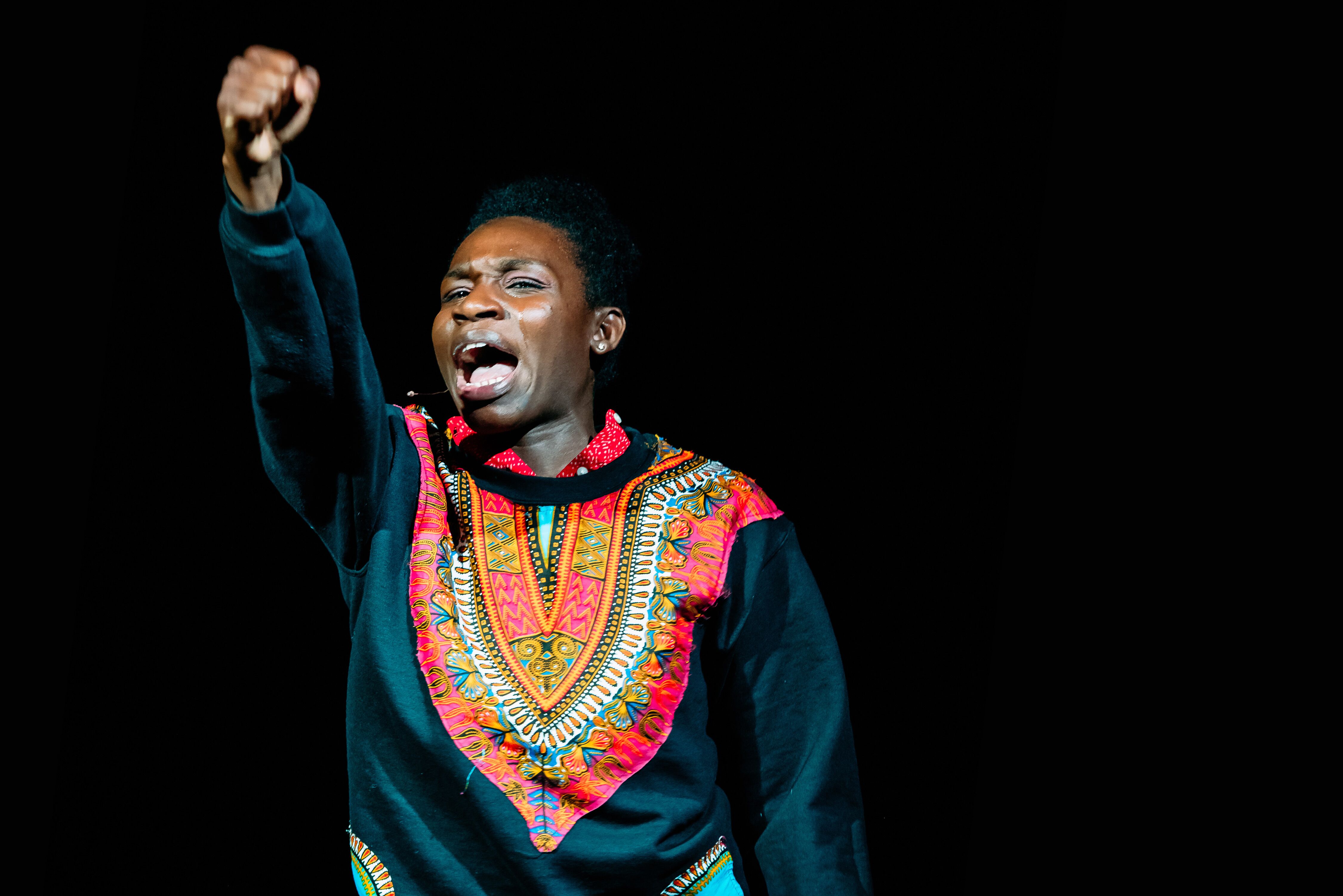
Photography by Mihaela Bodlovic
In all honesty, the name of this play had me feeling wary. Woke is a word that I once emblematically associated with the safe spaces I found my voice in, like Black Twitter, but since it was hijacked by brands, it’s now almost cringe-inducing. However, playwright Apphia Campbell has taken “woke” back from those who co-opted it and re-applied it to its radical context – to be awoken from the effects of white supremacy.
After a successful London run in June, this month the evocatively-named WOKE arrived at the Edinburgh Fringe. Her tale weaves together the timelines and stories of two black women challenging the American justice system at pivotal points in history.
She says the idea for WOKE came to her while she was living in Shanghai with a friend in, during the Ferguson unrest. Videos of armoured police tanks and officers using tear gas filled the news. “We both remember seeing these images while we were in China, and I remember specifically thinking, what’s going on back in America?” she exclaims. “Has America gotten so bad that they need militarised police and tanks?”
When learning more about the Black Lives Matter movement, one name kept coming up: Assata Shakur. A former member of the Black Panther party and Black Liberation Army, she was convicted for the killing of a white police officer in 1973. She was also the first woman to be placed on the FBI’s most-wanted list. Her case is one of the most heavily referenced in discussions of race relations and police brutality in America. Reminiscing on her time in college learning about the revolutionary figure, Apphia was inspired to juxtapose two characters, one around the current events of 2014 and a 1970s figurehead.
When we meet our second character Ambrosia, a middle-class young black woman, is enrolling in college in St Louis in 2014 – the same year the streets of Ferguson burned as the city was overcome with claustrophobic rage. They’re decades apart, but it’s the same story of systematic injustice and violence.
When the play opens on Apphia alone in a spotlight, she’s singing a beautiful rendition of ‘St Louis Blues’. She’s embodying Ambrosia, about to set off for university for an African American literature class, where they will be reading through the autobiography of Assata. Masterfully, Apphia transforms into her in front of the audience. Red lights fill the space as she shifts her posture and voice to match that of the revolutionary and begins a monologue about the moments after the New Jersey turnpike shooting that had her put in prison.
While Assata’s timeline in the play is not chronological in the way Ambrosia’s is, it is easy and exciting to follow as we return back to Ambrosia, now engaged in a heated debate about the Black Lives Matter movement with her classmates. She’s encouraged to join them at a Mike Brown rally in Ferguson, where she experiences first hand the way the police system has rigged the world around her. Through these realities and the words of Assata, the play shows us how Ambrosia’s eyes are opened, all building to a climactic final scene in the middle of the riots.
“My friend Meredith and I sat down and decided to make this character ‘Ambrosia’ around Assata’s story to mirror the same experiences that were happening, because of the obvious similarities we saw between the Black Panther movement and the BLM movement,” says Apphia. The most pertinent takeaway from her play is that it highlights that things we think are in the past are relevant and connected. “[Assata’s] story is still going on! I think a lot of people don’t realise she’s still out there. She’s still living in exile in Cuba knowing she can never come back to America, all because she was criminalised in that period.”
Apphia thinks it’s important to be retelling black stories and histories: “You are likely to repeat it if you don’t understand what’s come before you. I’ve lived abroad for almost 10 years, and for me, not being in America and not experiencing these things was kind of eye-opening. It’s so important that we tell our own stories. You can’t tell a story that you haven’t experienced.”
Raised in America, having lived in Shanghai, and now currently settled in Glasgow, Apphia has lived experience as an African American woman outside of America. This was a major influence in the construction of Ambrosia as she thought carefully about how to tell the two stories to an audience who might not be as aware of the US system.
“You are likely to repeat it if you don’t understand what’s come before you”
Apphia Campbell
“I wrote her from the perspective of someone who knows absolutely nothing about it, and I think that’s why she resonates a lot with the people who come in expecting to see a certain type of character because then they suddenly realise that they identify with them.”
The writing of Ambrosia’s character is smart. Revolutionary figures are almost always given to us in stories as confident, fully-formed activists and thinkers, but meeting this character before her eyes are opened and following her full story is a more realistic narrative.
“I wrote the character of Ambrosia to be a blank page. Even though she is black, has grown up in a very affluent family away from the movement and controversy in that way,” she says, explaining that the character’s upbringing meant she had grown up on the fringes of the movement in the way viewers had also watched from the sidelines.
“She even has a line at the start of the play, ‘If they disobey the law, they have to be punished’. We wrote that character not saying that’s how people think, but sometimes if you just look at the mainstream media you see just one side of the story.” There is a lot here to be unpacked about equating a black middle-class experience to one that has never experienced oppression. It’s a fairly controversial premise that rests on the mindset that affluence bringing you closer to whiteness and therefore separates you from being able to connect with black issues.
From watching the play it is clear that Ambrosia’s entire upbringing and environment has led her to believe that the American justice system is a fair one. The first time we meet her character she is telling us about how her father, a person that influenced her heavily growing up, had shaped her views on the Black Lives Matter movement. The play begins to show the complexity of the intersections between race and class, and so highlights a conversation worth expanding further about how black people of different classes will initially relate to the struggles of racism.
Overall, Apphia Campbell’s WOKE is powerful, angry, soul-filling and poetic. You leave the space feeling charged. Those already deep in the movement leave with the power of Assata’s voice filling their chests, and those who have just had their eyes opened leave galvanised by Ambrosia’s journey.

